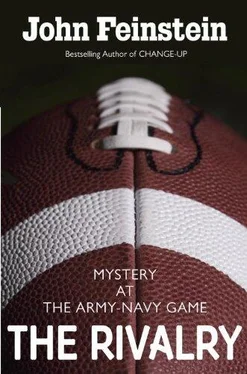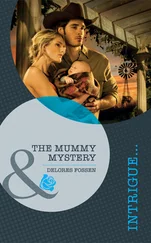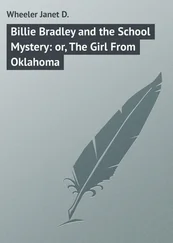
John Feinstein
The Rivalry: Mystery at the Army-Navy Game
© 2010 by John Feinstein
This book is for Jim Cantelupe, Joel Davis,
Garrett Smith, and Andrew Thompson- my Army-Navy
captains-and for all their teammates,
past, present, and future…
1. GAME DAY: 3 HOURS TO KICKOFF
“Here they come.”
At the sound of Susan Carol Anderson’s voice, Stevie Thomas instantly did two things: he turned to look at the tunnel at the far end of FedEx Field, where the Naval Academy band would be emerging at any moment, and he also stood up very straight because that was always what he did when standing next to Susan Carol.
From underneath the stadium he could now hear “Anchors Aweigh,” the Navy fight song. He had memorized the words to both “Anchors Aweigh” and “On, Brave Old Army Team” in the past two weeks.
Sure enough, the band was marching out of the tunnel. It was three hours before kickoff of the Army-Navy game, but the stands on both sides of the stadium were more than half full.
The game was scheduled to start at precisely 12:08 p.m., and Stevie and Susan Carol had arrived at the stadium with Bobby Kelleher and Tamara Mearns shortly after 7:00 a.m. Kelleher and Mearns were married and both columnists, but they worked for rival papers-Kelleher for the Washington Herald , Mearns for the Washington Post . They had become unofficial mentors to the two aspiring teenage journalists, but Stevie and Susan Carol had covered so many major sporting events in the past couple years that they felt like old pros. And so the four of them chatted comfortably on the sidelines as the traditional march-ons began.
First the entire student body of Annapolis would march onto the field, followed by the entire student body of West Point. Stevie now knew a good deal about both Army and Navy, having spent much of the last few weeks at the two academies.
“Ladies and gentlemen,” the PA announcer said, “please welcome, from the United States Naval Academy, the Brigade of Midshipmen!”
The band peeled to the left to start working its way up the far sideline, and Stevie could see the first of Navy’s thirty-two companies marching into the stadium. To Stevie it looked as if the mids were marching in lockstep, about ten across as they followed their company commander onto the field.
But Kelleher was shaking his head. “They can’t march,” he said, a smile on his face. “Look at them, they’re practically loping.”
“Who needs to march on a boat?” Mearns asked.
“Yeah, yeah,” Kelleher said. “But they almost never practice except the week of this game. The Army kids march all the time.”
“Spoken like an Army fan, Bobby,” Susan Carol said, her lilting North Carolina accent in full force. “You showin’ bias already?”
Everyone laughed as the third company arrived on the field. “Look, I’ve told you, Susan Carol, I grew up in New York, but I’ve been around Navy ever since I came to Washington. I have no biases.”
“Don’t you always say that everyone has biases and we just have to be aware of them?” Stevie said.
Kelleher looked at him and shook his head. “That’s the problem with fourteen-year-olds,” he said. “They’re always listening when you talk.”
“Don’t believe it, Bobby,” Susan Carol said.
As each new group began its march into the stadium, the announcer would say the company’s name and the names of their company leaders, and cheers would rise up from the crowd.
Two men strode purposefully toward them down the sidelines. Pete Dowling was tall, with close-cropped graying hair, and Bob Campbell had jet-black hair, but otherwise they were hard to tell apart in their Secret Service uniforms: dark suit, sunglasses, and wires running from their shirt collars up to their right ears.
“How’s it looking?” Kelleher asked Dowling as the two men approached.
“Worst problem we’ve had is some fans trying to smuggle in alcohol,” Dowling said. “Cold as it is, I don’t really blame them.”
It was a chilly morning-only about thirty-five degrees. But the sky was clear, and with the sun shining, it would warm up by game time. Football in December-it was bound to be cold.
Campbell turned to Stevie and Susan Carol. “Quite a sight, isn’t it?”
“Yes! And it’s a fabulous view from here.” Susan Carol had accompanied Campbell on a security sweep earlier, and the two hours had been mind-numbingly dull-which was okay with her. She’d had enough excitement in the past week. They had gone from one luxury box to another while Campbell made certain that every nook and cranny had been checked and rechecked by agents and police and bomb-sniffing dogs.
Their tour had concluded in the incredibly plush owner’s box, which was where the president would sit during the first half of the game. Then he would cross the field at halftime, as was tradition, and sit in a specially constructed box on the Navy side during the second half.
Susan Carol couldn’t help but notice that, other than the luxury-box area, the stadium was kind of a dump-even with all the bunting that had been hung for the game. A lot of the seats were at bad angles; there were some with almost no view of the field at all. It was a good reminder of how lucky she was to be here on the sidelines.
“Bobby’s been pointing out that the Navy guys can’t march,” Stevie said.
“Bobby’s an Army fan,” Agent Dowling said. “But he’s right anyway.”
“Look, I always say Army wins the march-on and Navy wins the playing of the alma maters when the game’s over,” Kelleher said. “ ‘Blue and Gold’ is a much better song than ‘Alma Mater.’ ”
Mearns looked carefully at Dowling. “You’re serious? There’s nothing going on that makes you nervous? We’re still not quoting you on anything.”
Dowling nodded. “You guys have been as good as your word on that. If something was going on, I’d at least say I couldn’t tell you. But it’s all quiet so far. Everything has been checked and we’ll do another sweep of all the locker rooms, the tunnels, and the field before the president gets here.”
“Still on schedule for eleven forty?” Kelleher asked.
“Wheels down on his helicopter outside at eleven thirty-five,” Campbell said, glancing at his watch. “He’ll meet the teams, flip the coin, and we’ll get him up to his box in time for kickoff.”
Stevie was still a little bit nervous. The past two weeks had been eventful, to say the least. Plus, his history at major sporting events with Susan Carol made it almost certain that something was going to happen before the day was over.
The Brigade of Midshipmen, all four thousand of them, were now spread out across the entire field in thirty-two perfect units. They were staring straight ahead, facing the Navy fans. It was an impressive sight, and the fans thought so too-they were all on their feet cheering.
Suddenly, all four thousand midshipmen pivoted-as one-to turn and face the Army fans.
“A-R-M-Y-goooooo, ARMY!” they said together, doffing their caps as they finished. Applause and a few cheers came from the Army fans, most of them dressed in black and gold.
The midshipmen stood still for a few seconds, caps still in the air. Then, again as one, they put them smartly back on their heads, paused, and pivoted so they were facing the Navy fans again.
“N-A-V-Y-GOOOOOOOOOOO, NAVY!!!!” Their combined voices were about five times as loud.
Stevie felt a chill as the Navy fans erupted, and for once it wasn’t the cold. He had really come to appreciate all the Army and Navy traditions in the past two weeks, and this pageantry was like nothing he had ever experienced before.
Читать дальше













